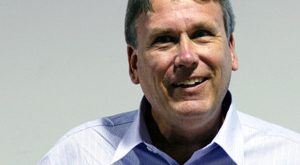from Lars Syll Nowadays there is almost no place whatsoever in economics education for courses in the history of economic thought and economic methodology. This is deeply worrying. A science that doesn’t self-reflect and asks important methodological and science-theoretical questions about the own activity, is a science in dire straits. How did we end up in this sad state? Philip Mirowski gives the following answer: After a brief flirtation in the 1960s and 1970s, the grandees of the...
Read More »The third axiom of neoclassical economics: methodological equilibration
from Christian Arnsperger and Yanis Varoufakis The third feature of neoclassical economics is, on our account, the axiomatic imposition of equilibrium. The point here is that, even after methodological individualism turned into methodological instrumentalism, prediction at the macro (or social) level was seldom forthcoming. Determinacy required something more: it required that agents’ instrumental behaviour is coordinated in a manner that aggregate behaviour becomes sufficiently regular...
Read More »The problem of extrapolation
from Lars Syll There are two basic challenges that confront any account of extrapolation that seeks to resolve the shortcomings of simple induction. One challenge, which I call extrapolator’s circle, arises from the fact that extrapolation is worthwhile only when there are important limitations on what one can learn about the target by studying it directly. The challenge, then, is to explain how the suitability of the model as a basis for extrapolation can be established given only...
Read More »Polanyi’s six points
from Asad Zaman The analysis of Polanyi’s Great Transformation can be summarized in the six points listed below. 1: All societies face the economic task of producing and providing for all members of society. Modern market societies are unique in assigning this responsibility to the marketplace, thereby creating entitlements to production for those with wealth, and depriving the poor of entitlement to food. All traditional societies have used non-market mechanisms based on cooperation and...
Read More »The second axiom of neoclassical economics: methodological instrumentalism
from Christian Arnsperger and Yanis Varoufakis We label the second feature of neoclassical economics methodological instrumentalism: all behaviour is preference-driven or, more precisely, it is to be understood as a means for maximising preference-satisfaction.[1] Preference is given, current, fully determining, and strictly separate from both belief (which simply helps the agent predict uncertain future outcomes) and from the means employed. Everything we do and say is instrumental to...
Read More »Open thread Feb. 16, 2018
Modern macro-economists: money is not ‘neutral’. Bordo, Meissner, Sufi and Mian do a good job.
Hardcore neoclassical economist John Taylor has edited a new handbook of macro-economics. The good news: the sands are shifting. After 2008, more attention has been paid to the obvious fact that we’re living in a monetary world. Guess what: it turns out that money is non-neutral after all. Two examples (summaries below): (A) Bordo and Meissner claim that whenever a country has a large banking sector it has a choice, during a financial crisis. It can bail out the banks or it can try to...
Read More »The first axiom of neoclassical economics: methodological individualism
from Christian Arnsperger and Yanis Varoufakis Unsophisticated critics often identify economic neoclassicism with models in which all agents are perfectly informed. Or fully instrumentally rational. Or excruciatingly selfish. Defining neoclassicism in this manner would perhaps be apt in the 1950s but, nowadays, it leaves almost all of modern neoclassical theory out of the definition, therefore strengthening the mainstream’s rejoinders. Indeed, the last thirty years of neoclassical...
Read More »Bitcoin, efficient markets, and efficient financial sectors
from Dean Baker John Quiggin had a good piece in the NYT, pointing out how the sky-high valuations of Bitcoin undermine the efficient market hypothesis that plays a central role in much economic theory. In the strong form, we can count on markets to direct capital to its best possible uses. This means that government interventions of various types will lead to a less efficient allocation of capital and therefore slower economic growth. Quiggin points out that this view is hard to...
Read More »The arrow of time in a non-ergodic world
from Lars Syll For the vast majority of scientists, thermodynamics had to be limited strictly to equilibrium. That was the opinion of J. Willard Gibbs, as well as of Gilbert N. Lewis. For them, irreversibility associated with unidirectional time was anathema … I myself experienced this type of hostility in 1946 … After I had presented my own lecture on irreversible thermodynamics, the greatest expert in the field of thermodynamics made the following comment: ‘I am astonished that this...
Read More » Heterodox
Heterodox



